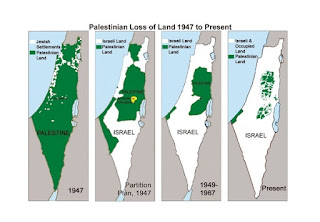Questions such as these have always perplexed humanity and despite the great advances made over recent centuries in understanding the behaviour of the world around us, we seem to be no closer to answering these core questions about the nature of existence.
In my new book Anything Goes – A Philosophical Approach to Answering the God Question, I argue that, paradoxically, answers to these questions can be obtained – but only once we recognise that no knowledge of the true structure of reality is possible. What do I mean by this? Well, essentially that claims about the structure of reality are models that describe the way our experience of how the world behaves. It is these models that then become our reality.
Put short, all the world is models
The popular notion of how science progresses is that we are steadily, if slowly, getting closer to the truth about the nature of the world around us. Indubitably, as time has gone on, scientific advances have been made and, yes, we have reached the stage where two great theories, Einstein’s General Relativity and the Standard Model of particle physics, provide us with a nearly complete description of the universe. We just need some clever physicists to iron out a few wrinkles like dark matter and dark energy in a Theory of Everything, and then we will have arrived at the Truth of how reality is structured.
The naivety of this belief is striking, a point highlighted by 20th century philosopher of science, Karl Popper, when he pointed out that scientific theories can never be proven to be true. Rather, they are working assumptions about the way the world is, that are supported by the evidence. Until they aren’t.
Ultimately, scientific theories are models of the way the universe works. They allow us to understand the universe in terms of its behaviour, and we can use them to predict how the macroscopic objects of our experience, such as tables, stars and light bulbs behave. They do this by characterising the universe in a certain way that helps us get to grips with it. Because, as humans, we just do not have the tools to find out what the universe is ‘really like’.
The Map is the territory
Now comes the plot twist. The surprising but unavoidable consequence of this conceptual speed limit, is that the structure or make-up of this reality that we are modelling is irrelevant! It is only reality’s behaviour that matters. It is reality’s behaviour that we are modelling and a good model will predict its behaviour well. But if reality’s structure is unknowable and elusive, then it will forever remain a shadowy mysterious thing lying behind the veil. It is only the structure and objects of our models that can be known to us. These are the things that we live by and that give our lives meaning. And so these are the only objects that can be considered ‘real’ in any meaningful sense – if the objects of our models are not real, then nothing is real.
And so, what we have here, I would argue, is a case of The Emperor’s New Clothes. Many scientists and physicists are aware that all of our understanding is in terms of our models, but avoid engaging with the implications of this, because it is unnecessary for day to day work and raises difficult questions. They cling to the idea that there must be a ‘right answer’ out there, because if there isn’t, then well doesn’t everything fall apart? Where are the standards of correctness? What is to stop us from just claiming that whatever we like is true? In my book, I argue that these worries are unfounded. Although the structure of reality is unknowable, the good news is that it does behave in a certain way. And so not all models are created equal.
Anything Goes
I like to call this way of thinking the ‘Anything Goes’ method, because with no knowable reality to assess our models against, the only standard of correctness is a consideration of whether your model produces sensible results. And there is more to modelling reality than just the laws of physics. Even the idea that there is some kind of external reality, that is the source of our experiences, is part of this model that gives us an explanation for why our experiences behave in the way they do. Ultimately, each of us needs to find a way of making sense of our experiences in a way that works for us. In that sense, Anything Goes.
I think that this way of thinking is revolutionary! Once we recognise that it’s all a matter of perspective – that there are no disembodied facts about the universe in any useful sense, we can make progress in all sorts of areas that have previously proved intractable. Does God exist? It depends on your model. Is Schrödinger’s Cat alive or dead? Well, from whose perspective? Schrödinger’s or the cat’s? How would we tell if an Artificial Intelligence model attained consciousness?
Visit http://www.anythinggoesmetaphysics.com/ to find out more as well as for details of how to get a free advance copy.












